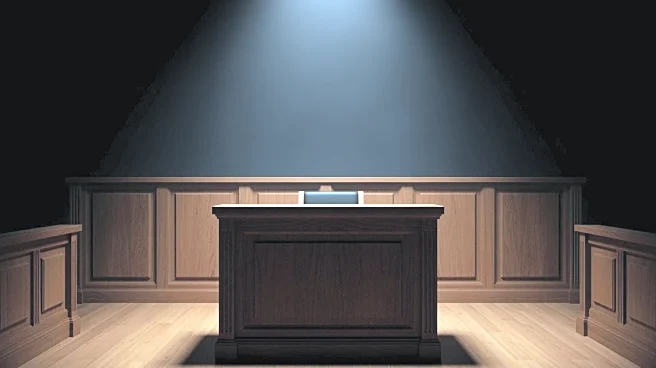What's Happening?
Former special counsel Jack Smith has requested permission from Congress and the Justice Department to testify publicly regarding his investigations that led to criminal charges against President Trump
in 2023. Smith's request, detailed in a letter to the House and Senate Judiciary committees, aims to address what he describes as 'many mischaracterizations' of his work. The investigations in question involved allegations of mishandling classified records and actions related to the 2020 election results. Smith's lawyers have indicated that he requires assurances from the Justice Department that he will not face repercussions for his testimony, as some details of his investigations remain under seal or protected by grand jury secrecy rules. The letter also requests access to files from his tenure as special counsel to ensure comprehensive responses to congressional inquiries.
Why It's Important?
The potential public testimony of Jack Smith could significantly impact public perception of the investigations into President Trump. By addressing alleged mischaracterizations, Smith seeks to clarify the integrity of his work, which has been a point of contention among political figures. This development is crucial as it may influence ongoing political narratives and public trust in the judicial process. The outcome of Smith's testimony could affect the political landscape, particularly in how future investigations and prosecutions are perceived. It also underscores the tension between transparency and the confidentiality of legal proceedings, highlighting the challenges faced by legal professionals in politically charged cases.
What's Next?
If Smith's request is granted, public hearings could provide a platform for him to defend the integrity of his investigations. This would allow for a broader public evaluation of the cases against President Trump. The decision by Congress and the Justice Department on whether to allow such testimony will be closely watched, as it could set a precedent for how similar cases are handled in the future. Stakeholders, including political leaders and the public, will likely react based on the perceived fairness and transparency of the proceedings.








